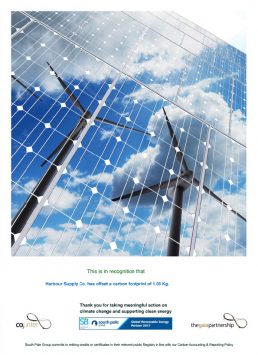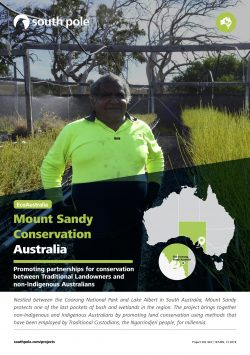Carbon Offsetting

Once you have reduced your emissions we can assist with automatically generated certified carbon offsets. Purchase offsets directly from the hosted or web-service CO2counter.
The CO2counter system aggregates verified measurement with certified carbon offsets giving periodic reporting and compliance.
Current VCS offsets from the CO2counter
Gaia offer – via the CO2counter, offsets in the Mount Sandy Conservation Project
Nestled between the Coorong National Park and Lake Albert in South Australia, Mount Sandy protects one of the last pockets of bush and wetlands in the region. The project brings together non-Indigenous and Indigenous Australians by promoting land conservation using methods that have been employed by Traditional Custodians, the Ngarrindjeri people, for millennia.
What are VCS offsets?
Verified Carbon Standard (VCS)
The VCS Program provides a robust, new global standard and program for approval of credible voluntary offsets.
VCS offsets must be real (have happened), additional (beyond business-as-usual activities), measurable, permanent (not temporarily displace emissions), independently verified and unique (not used more than once to offset emissions).

What is a carbon credit?
Carbon credits are like certificates that represent a reduction of greenhouse gases in the atmosphere. Projects that prevent the generation of greenhouse gases or remove greenhouse gases from the atmosphere earn these credits, which can in turn then be “sold” to other businesses and individuals to “offset” the emissions they generate. One carbon credit is the equivalent to a saving of one tonne of carbon dioxide (CO2).
Gaia currently offer South Pole Group Verified Carbon Standard (VCS) offsets. These adhere to rigorous project principles.
The funds received from the sale of carbon credits essentially balance out the higher cost of renewable energy production and sustainable resource use, making these projects cost-effective. The South Pole Group supplies only the highest quality carbon offset credits, accredited under the most stringent international standards. These carbon credits are typically earned by projects which use renewable energy sources – such as wind, solar, hydro or renewable biomass – instead of fossil fuels, to generate electricity and/or heat. Other common types of project include using energy-efficient technologies to reduce fuel consumption, capturing methane from household or agricultural waste and using it for energy, and preventing deforestation.

